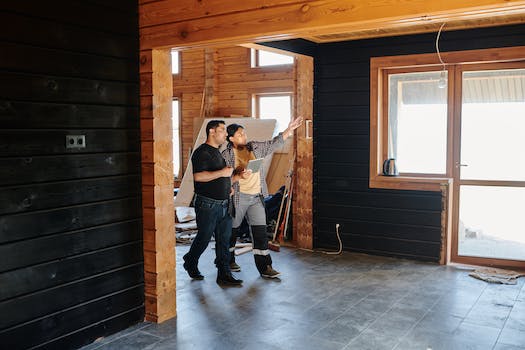Introduction: The Importance of Customizing Insulation Plans
Welcome to our blog, “Customizing Insulation Plans to Suit Individual Needs”. The importance of customizing insulation plans cannot be overstated. Each building is unique, with its own specific needs and challenges when it comes to insulation. A one-size-fits-all approach simply doesn’t work. Customizing your insulation plan ensures that your building is as energy-efficient as possible, saving you money in the long run. It also provides a more comfortable environment for everyone inside. In this blog, we’ll guide you through the process of creating a tailored insulation plan, addressing your building’s unique needs and maximizing its energy efficiency.
Understanding the Basics of Home Insulation
Understanding the basics of home insulation is key to creating a comfortable and energy-efficient home. Essentially, insulation acts as a barrier to heat loss and gain, primarily in walls, ceilings and roofs. The better your home is insulated, the less energy you’ll need to keep it warm in the winter and cool in the summer. There are several types of insulation, including batts, loose fill, rigid board, and spray foam, each with its own advantages and suitable applications. By understanding your home’s specific needs, you can customize your insulation plan to ensure maximum energy efficiency and comfort.
Why One-Size-Fits-All Insulation Plans Don’t Work
One-size-fits-all insulation plans often fail to deliver the desired results because every building has unique energy needs. Factors like the building’s design, its geographical location, and the local climate all play a significant role in determining the type and amount of insulation required. Simply applying a standard insulation plan can lead to inefficient energy use, discomfort due to temperature variations, and unnecessary expenses in the long run. Therefore, it’s crucial to customize insulation plans to suit each building’s individual needs for optimal energy efficiency and comfort.
Key Factors to Consider When Customizing Insulation Plans
When customizing insulation plans to suit individual needs, there are several key factors to consider. First, determine the climate of your location; the type and amount of insulation required can vary greatly depending on whether you live in a hot, cold, or moderate climate. Secondly, consider the size and type of your property. Larger properties or those with unique architectural features may require more complex insulation plans. Also, consider the materials used in your home’s construction, as certain materials may require specific types of insulation. Lastly, don’t forget to factor in your budget. While higher quality insulation may cost more upfront, it can provide greater energy savings in the long run.
Evaluating Individual Needs for Home Insulation
Evaluating individual needs for home insulation is a crucial step in crafting a customized insulation plan. It starts with understanding the specific requirements of your home, such as the size, location, and the current insulation status. It’s also essential to consider your budget and energy-saving goals. This evaluation helps determine the type of insulation needed and the most beneficial areas to insulate. For example, you might need more insulation in your attic or walls, or you might need to insulate your basement for the first time. Remember, a well-insulated home not only keeps you comfortable but also reduces energy costs significantly.
How to Choose the Right Materials for Custom Insulation
Choosing the right materials for custom insulation requires careful consideration of several factors. Firstly, consider the area of your home where you plan to install the insulation. For instance, fiberglass and spray foam are great for walls and attics, while rigid foam boards are ideal for basements. Secondly, think about the climate in your region. If it’s usually cold, materials with a high R-value like cellulose or spray foam are suitable. If it’s mostly hot, radiant barriers and reflective insulation are better. Lastly, consider your budget. Fiberglass is the most affordable, while spray foam is more expensive but offers superior insulation. Remember, the right insulation materials can increase your home’s energy efficiency and comfort.
The Role of Professional Insulation Contractors in Customizing Plans
Professional insulation contractors play a crucial role in customizing insulation plans to meet individual needs. They carry out a thorough assessment of your property, understanding your specific needs and preferences. Leveraging their expertise and knowledge about various insulation materials and techniques, they design a custom plan that maximizes energy efficiency, comfort, and safety. Whether you require insulation for a new construction, an existing property, or a renovation project, these professionals tailor their services to ensure optimal results. Hence, engaging a professional insulation contractor is a smart move to get a personalized, effective, and cost-efficient insulation plan.

Cost Implications of Customized Insulation Plans
Customizing insulation plans to meet individual needs can have cost implications. Initially, you might need to invest more money as tailor-made plans often cost more than standard ones. However, this upfront cost can lead to significant savings in the long run. Customized insulation plans are designed to specifically address the unique needs of your home, making them more effective in maintaining temperature and reducing energy consumption. This means you’ll be spending less on your heating and cooling bills over time. Thus, while the initial cost may be higher, the long-term savings make customized insulation plans a cost-effective choice.
Case Study: The Success of Customized Insulation Plans
In our recent case study, we looked at how customized insulation plans can lead to significant success. We found that when insulation plans were tailored to meet the individual needs of the property, it resulted in not only increased energy efficiency but also substantial cost savings. The study highlighted the fact that each property is unique, with its own set of challenges and requirements. Therefore, a one-size-fits-all approach to insulation often falls short. By taking into account factors like the property’s location, structure, and specific energy needs, we were able to devise a custom insulation plan that provided the optimal solution. This personalized approach proved to be highly effective, underlining the importance of customization in insulation plans.
Conclusion: The Long-Term Benefits of Customizing Your Insulation Plan
In conclusion, customizing your insulation plan offers significant long-term benefits. By tailoring the insulation to your specific needs, you ensure that you’re not paying for unnecessary materials and services. Moreover, it guarantees that every part of your home is adequately insulated, reducing energy consumption and lowering your utility bills in the long run. Also, a well-insulated home provides a more comfortable living environment, making it a worthwhile investment. In short, a customized insulation plan is a cost-effective, efficient, and smart approach to home insulation.
